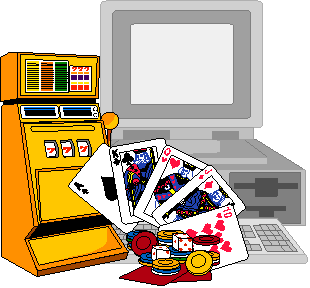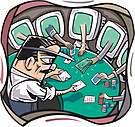
Factors that Influence
Internet Gambling Addiction
The Internet has begun to strongly impact the way we do things—shop, research, communicate—as many people access the Internet on a daily basis. With forms of Internet gambling becoming more popular, a non-gambling environment is created as people can gamble within their own homes instead of in gambling establishments like casinos (Griffiths, 2003). Since gambling on the Internet started in 1995, the industry has grown from only several websites to over 2,000 websites. It is estimated that the Internet gambling industry made more than $6 billion in 2003 (Tresniowski et. al, 2003). Two years later, the European Bank report on gambling showed the industry has grown to $9.2 billion since 1995 and expected a 22% yearly growth rate through 2008 (Anthony, 2005). Of those who reported gambling online via a University of Connecticut study in 2002, 74% have shown indications of having a serious problem. A major concern of online gambling is its lack of regulation: gambling outside of certain establishments is illegal in the United States, but gambling websites are run outside of the country, therefore bypassing the laws (Tresniowski et. al, 2003).
To better understand the lure of gambling, one can look at the marketing strategies used by the gambling industry—situational and structural characteristics. Situational characteristics are features that cause people to start gambling (such as location, number of outlets in the area, and advertising). Structural characteristics are features that cause reinforcement to gamble by satisfying the gamblers’ needs (such as event frequency, payout interval, and light, color, or sound effects). These characteristics may cause excessive gambling which can lead to a gambling addiction. Internet gambling changes these characteristics, especially the situational elements, and creates an impact on the uptake of gambling services (Griffiths, 2003).
The addiction of Internet gambling, as with other addicting activities, results from several factors: a person’s biological or genetic predisposition, psychological disposition, social environment, and/or the nature of the activity itself. There are other factors, however, about Internet gambling that can make it addictive. The virtual environment of the Internet itself can give short-term excitement, comfort, and distraction to those using it (Griffiths, 2003).

